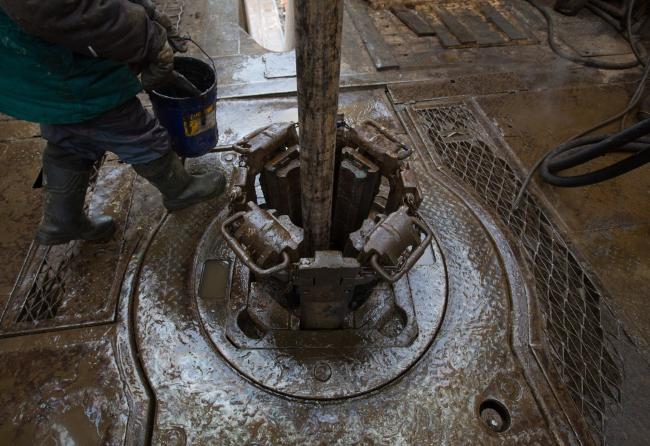(Bloomberg) -- Crude flipped between gains and losses as a severe crackdown on Iranian oil exports ticked closer.
U.S. and international oil prices ended Monday’s trading session little changed from where they began the day. While London futures settled lower, the West Texas Intermediate contract traded in New York posted a small gain. Even so, WTI was on track to advance more than 5 percent for April; if that holds, American crude will post its best start to a year since 1999.
U.S. exemptions that allowed China and several other major buyers to purchase Iranian oil will expire May 2, cutting off supplies from OPEC’s No. 4 producer. U.S. President Donald Trump over the weekend renewed calls for Saudi Arabia and OPEC to pump more crude.
“Uncertainty about what eventually is going to happen with those sanctions is kind of keeping the market unnerved,” said Gene McGillian, manager of market research at Tradition Energy. “The Saudis said they are not going to immediately boost production levels and that’s also adding to the uncertainty.”
Oil touched a six-month high last week after the White House announced the end of sanctions exemptions on Iranian crude. Investors are waiting to see whether Saudi Arabia will ramp up production to make up for any supply shortfalls after Trump said on Twitter he had spoken with suppliers about boosting oil flows and that “all are in agreement.”
WTI for June delivery edged up 20 cents to settle at $63.50 a barrel on the New York Mercantile Exchange.
Brent for June settlement fell 11 cents to end the session at $72.04 on the London-based ICE (NYSE:ICE) Futures Europe exchange. The global benchmark crude was at a premium of $8.54 to WTI.
Saudi Energy Minister Khalid Al-Falih said last week that the world’s biggest oil exporter will cater to customers’ needs, but doesn’t see the need for an immediate response to the Iran situation.
“The U.S. president clearly on-boarded the Saudis before tightening the screws on Iran,” said Stephen Brennock, an analyst at PVM Oil Associates Ltd. in London. Ultimately, the kingdom will probably “lead efforts to prevent the oil market from over-tightening.”
